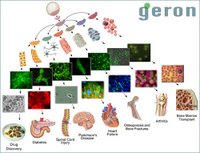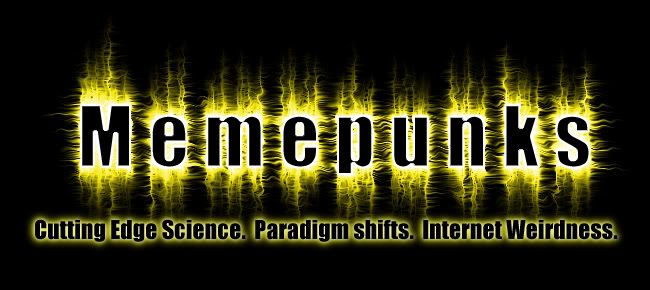A Stem Cell Crossroads
 Embryonic stem cells have always been a source of controversy here in America. We have politicized something that should be an issue of hard science, and placed stumbling blocks in the paths of some of the greatest minds in biotech research. The fireworks began in the early days of President GWB, when he placed a ban on all federal funding for any embryonic stem cells derived after August 9th, 2001. This turned out to be a much more dismal picture than the President painted initially. There were fewer "lines" of stem cells than promised, and many had been contaminated with non human tissues. Since then it has been slow going for ESCs. There has not been a single instance of a viable embryonic stem cell therapy in the US, and no changes have been made in the federal funding policy. But both of those things may be about to change.
Embryonic stem cells have always been a source of controversy here in America. We have politicized something that should be an issue of hard science, and placed stumbling blocks in the paths of some of the greatest minds in biotech research. The fireworks began in the early days of President GWB, when he placed a ban on all federal funding for any embryonic stem cells derived after August 9th, 2001. This turned out to be a much more dismal picture than the President painted initially. There were fewer "lines" of stem cells than promised, and many had been contaminated with non human tissues. Since then it has been slow going for ESCs. There has not been a single instance of a viable embryonic stem cell therapy in the US, and no changes have been made in the federal funding policy. But both of those things may be about to change.First off, scientists at Geron have devised a treatment for spinal injuries using embryonic stem cells. Their plan is to inject oligodendrocyte progenitor cells into the damaged spines of injury victims. OPCs are special cells that play a support role to neurons in the central nervous system. They do this by creating a fatty myelin sheath around the neurons which then aids in transmitting signals within the brain and spine. Oligodendrocyte progenitor cells can be grown from human embryonic stem cells, and that is just what Geron is doing. They have already carried out the treatment successfully in rats, and in vitro in the laboratory.
The cells also do not have to be cultured specifically for the patient. Tests have shown that the central nervous system does not reject the newly introduced treatment cells. Geron has applied to the FDA to begin human trials. They are ready to get underway as soon as the US regulator gives them the go-ahead. But the specifics of this treatment may not apply to other proposed ESC therapies, as immune responses may differ dramatically. The jury is still out on whether or not a success here will herald new growth and support for the cause of embryonic stem cells. But many eyes will be on the good doctors at Geron. I wish them success, both in the healing of their patients and in helping medicine take a step forward.
Secondly, the question of federal funding has come back around. Last year the house passed H.R. 810, the "Stem Cell Research Enhancement Act of 2005". This is a bill that would allow for federal funding for embryonic stem cell research. It goes on to specify the source of the stem cells must be "derived from human embryos that have been donated from in vitro fertilization clinics, were created for the purposes of fertility treatment, and were in excess of the clinical need of the individuals seeking such treatment". This would supersede the President's August 9th 2001 decree. This is not a blanket endorsement of ESC funding. It merely seeks to utilize embryos that already exist in excess. The bill goes on to further stipulate that it must be determined, "that the embryos would never be implanted in a woman and would otherwise be discarded".
They are talking about embryos that would otherwise quite literally go to waste. These plentiful and miraculous cells that could go on to save and improve the lives of hundreds of millions of people are currently being discarded. The passage of this bill would breathe new life into federally funded ESC research, without the destruction of a single embryo that wasn't already destined for the trash heap. H.R. 810 is now on the Senate's schedule, and could be voted on as early as next week. Even many republican Senators are backing the bill. It appears that the bill will get the needed 60 votes to pass the Senate. At which point the ball is in the President's court... As usual, he plans on dropping it.
The Denver Post recently covered a trip made to Colorado by the President's Deputy Chief of Staff/handler/brain, Karl Rove. Rove, who's machinations deserve a post of their own, stated in no uncertain terms that President Bush would veto the stem cell bill if it passes the Senate. If he does use that option, this would be the Presdent's first veto. Once again, science and medicine would fall by the wayside in the face of superstition and politics. Rove also stated that they are confident that congress lacks the 2/3rds majority needed to over turn a presidential veto. Thus giving Bush and company the final say in the matter.
Last month one of the bill's sponsors, Rep. Diana DeGette, sought a meeting with the President in an attempt to convince him not to veto H.R. 810. But Rep. DeGette received a four sentence letter refusing her meeting with the President, the day after Rove's public statement. There was no explanation as to why. The bill's supporters will push for a vote regardless of an impending veto from the white house. And who knows, with midterm elections not far away, perhaps stem cells could become an important enough political issue to fuel a 2/3rds majority in congress. I know I'll be watching the fate of this bill carefully, and casting my vote accordingly. [inspired by Bodyhack]
“In a prime-time address, President Bush said he backed limited federal funding for stem cell research. That's right, the President said, this is a quote, the research could help cure brain diseases like Alzheimer's, Parkinson's, and whatever it is I have.” - Conan O'Brien



0 Comments:
Post a Comment
<< Home